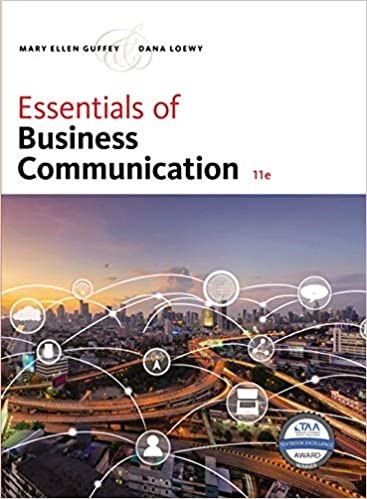Celebrate India!
Unity in Diversity!!
Click Here for Back Issues of Business Administration in India - From 2019
BOOKS FOR YOU TO READ AND DOWNLOAD FREE!
- SILENT TALK:
NONVERBAL COMMUNICATION ...
M. S. Thirumalai, Ph.D. - Introduction to Soft Skills ...
M. S. Thirumalai, Ph.D.
REFERENCE MATERIALS
- National Education Policy 2020
Ministry of Human Resource Development
Government of India - Some Inputs for Draft National Education Policy 2016
Ministry of Human Resource Development
Government of India - CENSUS OF INDIA 2011 General Data
- CENSUS OF INDIA 2011 DATA ON DISABILITY
BACK ISSUES
- E-mail your articles and book-length reports in Microsoft Word to thirubudmin@gmail.com.
- PLEASE READ THE GUIDELINES GIVEN IN HOME PAGE IMMEDIATELY AFTER THE LIST OF CONTENTS.
- Your articles and book-length reports should be written following the APA Stylesheet.
- The Editorial Board has the right to accept, reject, or suggest modifications to the articles submitted for publication, and to make suitable stylistic adjustments. High quality, academic integrity, ethics and morals are
expected from the authors and discussants.
Copyright © 2019
M. S. Thirumalai
Publisher: M. S. Thirumalai, Ph.D.
11249 Oregon Circle
Bloomington, MN 55438
USA
Introducing a Book:
Essentials of Business Communication
by Mary Ellen Guffey and Dana LoewyPublished by Cengage Learning, Inc., Eleventh Edition 2019
M. S. Thirumalai, Ph.D.

Courtesy:
https://www.amazon.com
This valuable textbook is divided into 6 Units.
Unit 1 Business Communication in the Digital Age Unit 2 The Writing Process in the Information Age Unit 3 Workplace Communication Unit 4 Business Reports – Best Practices Unit 5 Professionalism, Teamwork, Meetings, and Speaking Skills Unit 6 Employment CommunicationThis book also has over 500 pages. The book is written in easy to follow English and style. Examples are given; graphs and other visuals are presented. Meeting photos relevant to the chapter are included. Summary of Learning Outcomes in the form of short questions and answer points help us to remember what we have read and done in the particular chapter.
Unit 1 has one chapter. Chapter 1 is given the title Succeeding in the Social and Mobile Workplace. Among other things, this chapter focuses on the tools that we need to master to gain success in the Modern Business World. It also discusses the need to develop and master Listening Skills. Traditionally in Indian business activities and in overall living, listening skill is highly emphasized. For example, Tirukural, a Tamil didactic classic written many centuries ago, emphasize listening with humility as an important style that we all need to acquire. In this book we see several useful and important suggestions and techniques on developing listening skills. The chapter focuses also on learning nonverbal communication skills in addition to discussing how culture influences communication processes. The chapter emphasizes on the need for business administrators to become interculturally proficient. Each major point is given truly relevant examples, and this, indeed, is very useful to both teachers and students. We need to add relevant examples from the Indian/South Asian contexts to make our study more relevant and useful to our own contexts.
Unit 2 The Writing Process in the Information Age has three chapters: 2. Planning Business Messages, 3. Organizing and Drafting Business Messages, and 4. Revising Business Messages. The chapter on Planning Business Messages presents, among other things, analysis of the purpose of the messages, adapting to the audience, improving the tone and clarity of a message. The chapter on organizing and drafting business messages focuses several aspects including workplace messages, organizing information, skillful writing techniques, and powerful sentences. Chapter 4 emphasizes revising messages, enhancing message clarity, proofreading to eliminate errors and to use most appropriate words, phrases, sentences, etc., apart from ways to improve the effectiveness of the messages.
M. S. Thirumalai, Ph.D.
msthirumalai2@gmail.com
- Click Here to Access the Papers of April 2020 Issue
- Click Here for the PRINT VERSION OF THE PAPERS OF APRIL 2020 ISSUE IN BOOK FORMAT.
- Click Here for Back Issues of Business Administration in India
- Click Here for the HOME PAGE of Business Administration in India
- CONTACT PUBLISHER thirubudmin@gmail.com
- Send your articles
as an attachment
to your e-mail to
thirubudmin@gmail.com. - Please ensure that your name, academic degrees, institutional affiliation and institutional address, and your e-mail address are all given in the first page of your article. Also include a declaration that your article or work submitted for publication in BUSINESS ADMINISTRATION IN INDIA is an original work by you and that you have duly acknowledged the work or works of others you used in writing your articles, etc. Remember that by maintaining academic integrity we not only do the right thing but also help the growth, development and recognition of Indian/South Asian scholarship.